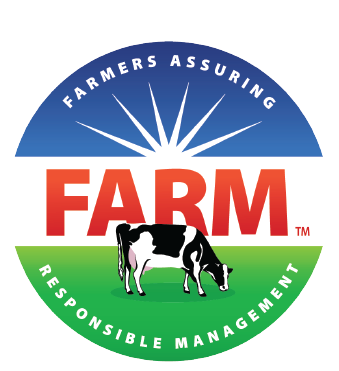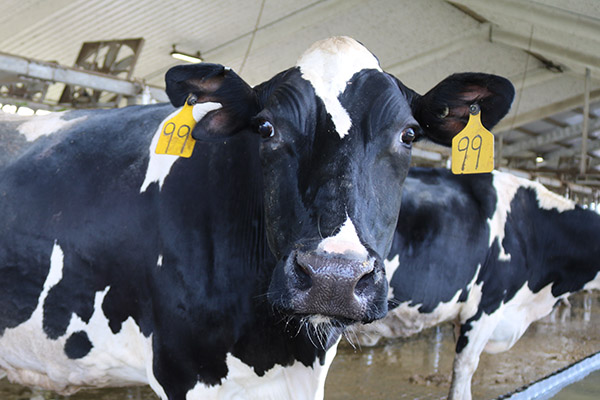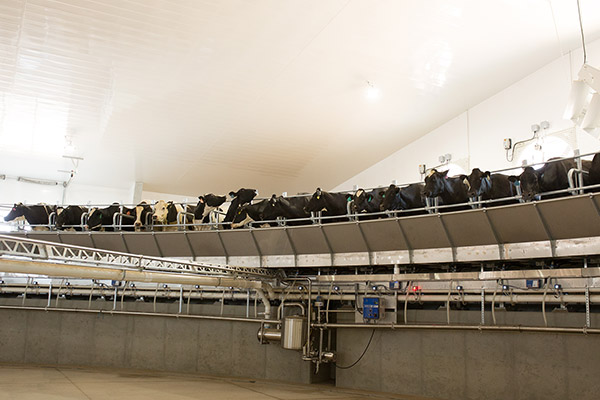- About
- Key Issues
Labor & Rural Policy
Sustainability
Animal Health
Nutrition & Food Safety
Labeling & Standards
- Programs & Resources
- Advocacy
- News
- Membership
- Events
- Stay Informed
- Contact
High Plains Ponderosa
Plains, KS


The familiar yellow and red of the Shell logo can be a welcome sight along a highway, signaling fuel and food ahead. At High Plains Ponderosa Dairy in Plains, Kansas, the famed seashell is now a sign of a sustainable alliances and low-carbon solutions, thanks to an innovative collaboration that’s pointing dairy – and transportation – toward a net-zero future.
“It is gratifying to contribute to reducing carbon load in the atmosphere while making positive enhancements to our dairy and our business,” said Greg Bethard, General Manager, CEO and CFO of High Plains Ponderosa Dairy. “That is a win-win for everyone.”

Royal Dutch Shell, headquartered in the Netherlands, last year announced its goal to be carbon-neutral by 2050. Part of that initiative includes working with dairies across the country to produce low-carbon intensity renewable compressed natural gas (R-CNG) as a fuel for heavy-duty, on-road transport.
After achieving “first gas” – startup and production of RNG – at its first biomethane facility in Oregon, Shell turned its sights to High Plains Ponderosa, a member of Dairy Farmers of America (DFA), to construct its first integrated dairy manure to RNG facility.
The dairy RNG facility will specifically deliver on two of High Plains’ goals: lowering the dairy’s carbon footprint and diversifying its income. Once operational, the facility at what’s been named High Plains-Shell Downstream Galloway is expected to produce more than 500,000 MMBtu a year of negative carbon intensity RNG using cow manure from the dairy.
Bethard says in addition to the carbon reduction, sustainability at High Plains means longevity and economic viability.
“We must care for our employees and their families, care for our cows and enhance their well-being, care for our land, and care for our community and neighbors.” Bethard says. “We strive to do these things every day, and if we can do them continually, we will be sustainable.”
Shell is involved in numerous renewable fuel initiatives that recognize the inherent sustainability of U.S. dairy farms. The RNG project is part of a shared interest Shell and dairy farmers have in generating biofuels as a valuable asset to reduce emissions from both transportation and agriculture in the decades ahead.
Shell is also recognizing the importance of animal welfare in its decision to work with dairies.
High Plains Ponderosa is a National Dairy Farmers Assuring Responsible Management (FARM) Animal Care Program participant, implementing industry leading welfare standards for its mixed herd of more than 16,000 cows.
“We reached out to the FARM Program to leverage the program’s expertise and work collaboratively on this topic,” says Sarah Hughes, PhD and Principal Ecotoxicologist for Product Stewardship at Shell. “We were happy to find the Animal Care Program in place at High Plains – and that FARM is ISO certified, third party verified, enforced, and routinely performed.”
Shell has had a comprehensive animal welfare program in place for over 20 years. The company works proactively and collaboratively with academia and industry to address any potential welfare concerns with their initiatives.
Their work with dairy cattle is no exception.
The FARM Program’s scalability was also attractive in Shell’s decision to work with High Plains. FARM Animal Care is dairy-type and size-neutral. Hughes says that as Shell grows its renewable fuels facilities at other dairies, it’s essential to find dairies that can support any future projects, regardless of the size or type of operation.

The nature of both Shell’s and High Plains’ goals may be forward-looking – both dairy and Shell have 2050 sustainability goals – but Kate Balart, Renewable Natural Gas Supply Development Manager for Shell, says the RNG project is creating fuel for the present.
“Shell Downstream Galloway is creating a carbon negative product for actual use in heavy duty vehicles today – this isn’t a fuel of the future, this is a transition fuel for now.” Balart says. “I think that’s really important for us all to remember this is aiding us in our journey for future sustainability.”
In the case of the Shell and High Plains, shared values and a common vision for the impact of RNG were key to making the collaboration a success, Balart said.
Bethard says renewable fuels are a step in the right direction of lowering dairy’s carbon footprint.
“We produce a wonderfully nutritious product that can be made into so many products that are part of a healthful diet like milk, cheese, yogurt, and butter,” Bethard says. “If we can deliver this nutritional power-house with a lower carbon footprint, everyone wins.”